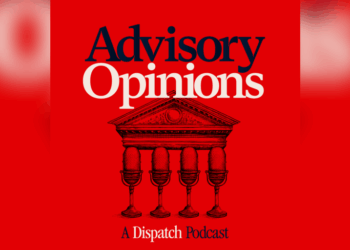
It was the economic-political version of antisemitism that flourished most robustly in the United States, marking the thinking of figures as different as Henry Ford and Louis Farrakhan. But there are many tributaries. There is a liberal form of antisemitism that is less anti-Jewish as such than hostile toward religious and ethnic identities in general, regarding these as impediments toward making people into the secular, rational, progressive kind of citizens their project requires—Teddy Roosevelt and other abominators of “hyphenated Americans” exemplified this in their time, as do crusaders for “secularism” in ours.
There is a distinctive form of Islamic antisemitism that is inflamed by the presence of a Jewish power in Palestine but far from limited in its scope to what happens “from the river to the sea,” and both that traditional Islamic strain and other pseudo-Islamic strains of antisemitism have entered American political thinking through a variety of channels: the Arab-American community and, to a lesser extent, other Muslim immigrant groups; heretical (at the very least, non-orthodox) versions of Islam invented by African-American cult leaders such as Elijah Muhammad; left-wing tendencies that treat Israel and the Jewish people as stand-ins for capitalism and Western imperialism and are influenced by Middle Eastern antisemitism.
There is also a separate, non-Islamic tradition of antisemitism among African Americans, some of it purely political and some of it religious (as in certain sects among the Black Hebrew Israelites). There is a distinct strain of antisemitism to be found among conservative Catholics in the United States and among certain white evangelicals, who, like many of those casual American and British antisemites of the 1930s and 1940s shocked by Nazism, sometimes hold views that seem radically contradictory. There is a sincere form of anti-Zionism that is invariably antisemitic in its implications but held by many Americans who do not think of themselves as antisemites and who would be offended by the suggestion that they could be accurately described that way.
Much anti-Zionism is only scrubbed-up antisemitism of the traditional kind, sanitized for polite society. But I am not entirely convinced that the more well-intentioned kind of anti-Zionism is all that different from the antisemitism of an Ezra Pound or a Henry Ford—that there is much difference between despising Jews one at a time or despising them corporately, as a national entity. Instead, I am persuaded by the view of Canada’s former attorney general Irwin Cotler, who sees common antisemitism and anti-Zionism as a matter of slight variation:
What is intrinsic to each form of antisemitism—and common to both—is discrimination. All that has happened is that it has moved from discrimination against Jews as individuals in their respective host societies—a classical Antisemitism for which there are indices of measurement; to discrimination against Jews as a People—and Israel as the collective Jew among the nations—a new antisemitism for which one has yet to develop indices of measurement.
The times being what they are—and what they are is poisoned by social media, which has taken down all of the fences that once stood around mass imbecility—there is now another kind of antisemitism to take into account: digital, entrepreneurial antisemitism. There is a market for antisemitism, and there are careers to be had servicing that market. Nick Fuentes, who has recently been in the news, is an entrepreneurial antisemite. Tucker Carlson is another.
(Kevin Roberts of the Heritage Foundation is a fool and a coward who wants to bank the profits of that antisemitism without taking any moral responsibility for it. With apologies to my friends who will be hurt by this: It is impossible for any self-respecting person to be associated with his Heritage Foundation.)
As a consequence of what we call, for lack of a better term, “identity politics,” there have long been a few distinct roles in American public life that call men and women toward a peculiar kind of career. There was once, for example, a place in American life for a man who would be treated as the chief spokesman for African Americans: The Rev. Martin Luther King Jr. held that job for much of his career, and then the Rev. Jesse Jackson held it for many years. (Speaking of antisemitism: Jackson’s account of “Hymietown” seems to have slipped into the shadows of forgetfulness.) The Rev. Al Sharpton, another trafficker in an antisemitism of convenience if not one of enduring principle, thought for a while that he was going to have the MLK job—and maybe he did, for a minute—but the happy truth is that African Americans are now so thoroughly integrated into the wider American society, that there are so many African Americans at the commanding heights of culture—business, politics, education, diplomacy, music, literature—that no one, even such a figure as Barack Obama, can be taken as representative of African Americans as a whole. (And there is no American public figure of any race, religion, or political tendency who today has the moral stature of MLK.)
Likewise, there was, for many years, a career to be had in being the nation’s chief racist: Strom Thurmond, who for much of his early career had a reputation as a relative moderate (emphasize relative, please) on racial issues, made himself into a national figure by putting himself forward for the role of chief racist in 1948. George Lincoln Rockwell held the office of top bigot for a time, as did, more consequentially, George Wallace. David Duke managed to avoid honest work for many years by serving as America’s racist-in-chief. Richard Spencer was up for the job for a while, but seems to have fizzled—this is not the time for a theater dork of his caliber. The diminutive and effeminate Nick Fuentes—that “weird little gay kid” as Tucker Carlson once called him—is auditioning for the role today, or at least for a seat at the round table in this newfangled Camelot of inflamed hemmorrhoids. Fuentes is a social-media grotesque, and if he currently leans more into antisemitism than into the kind of more traditional racism associated with, say, the Tarrant County Republican Party, it is probably because he has good metrics showing him that that is where the juice is.
Why should the juice be in antisemitism rather than in the kind of racism that sustained the political coalition of Robert Byrd, dean of the Senate and exalted cyclops of the Ku Klux Klan?
Anti-black racism plays as down-market, as “redneckery” of the lowest kind. Antisemitism, on the other hand, can be presented as sophisticated, and it has bipartisan appeal: There are antisemites among the Marxists and among the progressives, from the Ivy League campuses to the American Friends Service Committee. There are antisemitic appeals to be made to Catholics (Caeca et Obdurata Hebraeorum perfidia!) and to evangelicals, to secularists (who chafe at the notion of a state with a religious identity), to modernists who recoil from the traditional dress and large families characteristic of some Orthodox communities and to antimodernists who see the Jews as indigestible gristle preventing their daffy dream of an “integrated” neo-medieval social order. Antisemitism is infinitely plastic. And from the point of view of the social media entrepreneur, antisemitism is a surefire source of engagement.
Bill Buckley wrote of Pat Buchanan’s “iconoclastic temperament,” and, when it comes to figures such as Tucker Carlson, that has some explanatory power. Tucker Swanson McNear Carlson of the Collège du Léman and the splendid frozen food fortune does not need money—but he apparently needs to be talked about, and the need has driven him mad. That need can be acute: Retirement more or less killed Lou Dobbs, to take one example. Whatever Megyn Kelly is doing, she isn’t in it for the money.
If you have spent many years working in political media, then you will have seen the addiction to notoriety that some people develop. It starts, as many addictions do, with innocent enjoyment: One says something just a little bit outré and the reaction is—or can be—very, very satisfying. You push the envelope just a little bit and you get more applause, more social media engagement, more speaking invitations, more reaction. You know how it goes: “Oh, everybody else was thinking it—I’m just the only one who has the courage to say it out loud!” And, pretty soon, you’re rubbing up against The Protocols of the Elders of Zion. This is a particular temptation for very witty and intelligent men, such as the late Joe Sobran, to say nothing of one or two former friends and colleagues of mine. But there are many kinds of outrageousness and many ways to scratch that itch—why do so many so reliably and so often choose antisemitism? Why, when they start raving, do they rave about “the Jews” and not about little green men as in Christopher Buckley’s wonderful novel?
I am afraid that I think Hilaire Belloc was right, but more broadly than he knew: The Christian faith is our civilization, and our civilization is the Christian faith. The democratic spirit has left its dirty pawprints on both.
Americans are a motley bunch when it comes to religion—unorthodox, undisciplined, and wildly entrepreneurial, having invented more religions, Christian sects, and Christian-adjacent sects in our few short centuries than the Fertile Crescent did in an active millennium or two. Within a few decades, often within a few miles of one another, and sometimes involving some of the same people, Americans dreamt up Mormonism, Seventh-day Adventism, Christian Science, the Jehovah’s Witnesses, the Church of God in Christ, the Unity Church, the Theosophical Society, the Christadelphians, the Restoration Movement, Ethical Culture, the Reformed Mennonites, and many more—not to mention more recent developments such as the Nation of Islam and Scientology. Americans may have given up, en masse, on most forms of orthodoxy and on practically all forms of discipline, but we remain God-haunted and Bible-spooked.
You might say that this is what it looks like when Christian civilization abandons Christianity and slowly loses its grip on civilization, too: We retain some of the forms but little of their content, much of the ceremony but little of its meaning—instead of a living tradition, we have a vague memory. I have long thought it clever of George R. R. Martin to set Game of Thrones in a degraded civilization in which the kings and wise men, instead of having advanced technologically, have no idea how their ancestors produced the technological and architectural wonders of earlier ages. We haven’t regressed technologically—we are very, very high-tech barbarians. We can produce the technology, but have forgotten how to produce the civilization that produced the conditions that produced the technology, and much more of value than the technology.
One of the bits of Christian civilization that limps on in our time is the seedbed of antisemitism. It is a supreme irony: The central figure in Christianity is—I do not write was—a Jew, a Jewish man from a Jewish family who lived, until the advent of an extraordinary career, an ordinary Jewish life in a Jewish land. Christianity is not Judaism, and its fundamental claims are incompatible with Jewish orthodoxy. Pope John Paul II taught Christians to think of the Jewish people as “our elder brothers in faith,” and that seems to me the right way to go about it—a serious difference, but a loving disagreement within the family. It is, I think, the endurance of Jews that drives Christians a little bit mad—or a lot mad, at times—as though the Christian failure to entirely assimilate the Jewish people into our religion (its fragments) and into our Weltanschauung were the mark of some sort of a divine rebuke. Like much of what ails Christianity, this trouble stems from a Christian refusal to believe our own dogma and a Christian failure to understand that dogma in the first place. We behave as though God were unable to attend to His Own affairs, including His ongoing business with His chosen people. That is the democratic spirit in religion: the urge to give the Architect of the Universe a little nudge, here and there, and a little advice.
As readers probably have detected by this point, I am not very much inclined to write about Tucker Carlson and Nick Fuentes, the high-tech carnival barker and the freak-show specimen of the moment, respectively, nor about Kevin Roberts, who, to continue abusing the metaphor, is best thought of as the parking-lot attendant working for tips outside the big-top, nor about J.D. Vance, who obviously would rather not be reminded that he is courting the Christian-nationalist kook squad with a Hindu wife on his arm and who puts the master yogis to shame twisting himself into unlikely and undignified positions to explain away a big slop pail full of gross racist stuff—including, variably, Nazi stuff—passed back and forth among members of a Republican group. “Just kids,” the vice president says—about a group that included men in their 30s. That is more or less the defense Roberts makes of Carlson and Carlson makes of Fuentes: “Why make such a big deal?”
The answer ought to be obvious enough: Because truth is truth and a lie is a lie.
My complaint with Carlson et al. is, at root, a religious one. It could not be a political one: Tucker Carlson’s politics in these waning days of Anno Domini 2025 are not worth disagreeing with, and neither are Kevin Roberts’. Like every other self-abasing servant of the digital mob, their politics are insipid, superficial, and subject to instantaneous revision as soon as necessity requires it. One might as well argue with a puddle of piss on a hot summer sidewalk—whatever there is to it won’t last as long as the argument, and all that will remain will be a stain, if that, and the knowledge that you have wasted your time. Tucker Carlson may think that he can put on Christ with no more consequence than putting on those flannel shirts he affects these days (somewhere in Maine, there is a thrift shop with a lot of Brooks Bros. bow ties for sale), but it does matter—a great deal—that men such as he purport to speak from, and for, a Christian point of view.
Writing of a depressingly similar era—one that would seem to have roused him to some introspection about his own casual antisemitism—T.S. Eliot wrote:
Our preoccupation with foreign politics during the last few years has induced a surface complacency rather than a consistent attempt at self-examination of conscience. Sometimes we are almost persuaded that we are getting on very nicely, with a reform here and a reform there, and would have been getting on still better, if only foreign governments did not insist upon breaking all the rules and playing what is really a different game. What is more depressing still is the thought that only fear or jealousy of foreign success can alarm us about the health of our own nation; that only through this anxiety can we see such things as depopulation, malnutrition, moral deterioration, the decay of agriculture, as evils at all.
And what is worst of all is to advocate Christianity, not because it is true, but because it might be beneficial.
Towards the end of 1938 we experienced a wave of revivalism which should teach us that folly is not the prerogative of anyone political party or anyone religious communion, and that hysteria is not the privilege of the uneducated. The Christianity expressed has been vague, the religious fervour has been a fervour for democracy. It may engender nothing better than a disguised and peculiarly sanctimonious nationalism, accelerating our progress towards the paganism which we say we abhor. To justify Christianity because it provides a foundation of morality, instead of showing the necessity of Christian morality from the truth of Christianity, is a very dangerous inversion; and we may reflect, that a good deal of the attention of totalitarian states has been devoted, with a steadiness of purpose not always found in democracies, to providing their national life with a foundation of morality—the wrong kind perhaps, but a good deal more of it. It is not enthusiasm, but dogma, that differentiates a Christian from a pagan society.
Cretins such as Nick Fuentes and Kevin Roberts and Tucker Carlson make their living in the enthusiasm business. And they’ll traffic in antisemitism—or make room for antisemites, or make common cause with antisemites—because antisemitism engenders enthusiasm that can be monetized or commoditized for other purposes, such as the building of political coalitions or the gratification of petty personal vanity. The “collective Jew” that Irwin Cotler wrote about is, in that case, only a stepping stone—and so, for that matter, is Christianity, and so, for that matter, is the Jew who is the central figure of Christianity. A boot on the face of the collective Jew is a boot on the face of Christ.
Some stepping stone. But: A stepping stone toward what?
The first primitive man to build an idol probably built one that looked like his mother, something like the Venus of Hohle Fels. That was an understandable impulse, and not without honor. The second guy, I’d bet good money, built an idol that looked like himself—also an understandable impulse, but a less honorable one. Some idols acquire a patina of respectability over the ages. Some do not. But, if you ask me, idolatry is idolatry. And a digital mob is a very strange kind of idol to worship, a very low and especially shameful one.
Words About Words
Sometimes, I think I should not bother writing this section, if only because I often would do better to point the reader toward the latest from Bryan Garner or—as is the case this week—to John McWhorter. McWhorter recently wrote about the mispronunciation of the name “Mamdani,” diving into the mechanics of why it is so easy to mispronounce.
Josephine Baker as “La Baker,” pronouncing it “bah-CARE,” because this was how one would pronounce the spelling in French. The Japanese adopt English words to the sound patterns of their language, such that “baseball” is “beesubooru,” “strike” is “sutoraiku,” and Mamdani would be rolling-pinned out into “Mamadani.”
Speech is rapid and largely subconsciously controlled. We do not slowly approach an unfamiliar sound pattern, examine it, take a deep breath and execute it. We get tripped up on it, like driving through a pothole. Between clashing sound systems and spelling eccentricities, a nation as diverse as ours must allow for an occasionally bumpy ride.
My favorite example is the Kosciuszko Bridge, named after the Polish general Tadeusz Kosciuszko. A respectable approximation to the Polish pronunciation would be “kuh-SHOOSH-ko,” and it would hardly be an Olympic feat to master. But between the unfamiliarity of the sound pattern and the challenge of the spelling, New Yorkers unabashedly settle for the jolly mess of “koss-kee-OSS-ko” and variations upon it. Of course, this would be an utterly rude way to address a living person, but I suspect General Kosciuszko, who fought in the Revolutionary War, was used to it.
The piece is very good and worth reading. I recommend it. But mainly, I want to invest a few pixels here in acknowledging what a national by-God treasure John McWhorter is and to praise the New York Times for giving him the room he needs to do his thing.
I’d also like to advise the esteemed linguist that one drives over a pothole, not through it. How would that even work?
Elsewhere
You can buy my most recent book, Big White Ghetto, here.
You can buy my other books here.
You can check out “How the World Works,” a series of interviews on work I’m doing for the Competitive Enterprise Institute, here. My most recent guest is the very interesting and entertaining Steve DelBianco, president and CEO of NetChoice.
In Closing
“Caritas non conturbat me,” Belloc wrote. Me, either. I sleep the sleep of a man with a perfectly unperturbed conscience. Someday, he’s going to want it back.

















